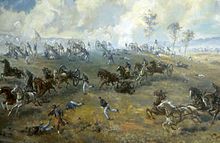Potentially some good news in victim compensation in the Deepwater Horizon spill. In March BP agreed to a scheme for awarding financial damages with lawyers representing the class of people who suffered economic harm.
In the 1000 page agreement, certified by a Louisiana Judge, awards were to be determined by the income and revenue before and after the disaster.
As it turns out the amount could double or more the $8.5 Billion BP estimated AND their fines for environmental damage could be $23 Billion more than the $25 Billion they have already spent on clean up.
So in total this could end up costing them north of $55 Billion. Good news if you believe in justice and accountability, bad news if you’re a BP shareholder.
US government assessment of BP oil spill ‘will not account for damage’
Suzanne Goldenberg, The Guardian
Thursday 11 July 2013 08.17 EDT
A report from the National Research Council said the US government’s efforts to put a price on damage from the April 2010 disaster failed to capture the full extent of the environmental and economic losses in Gulf waters and coastal areas, fisheries, marine life, and the deep sea caused by BP’s runaway well.
Compiled by a team of 16 scientists at the request of Congress, the study went on to call for a sweeping overhaul of methods for putting a price on environmental losses – especially after an event on the scale of the BP disaster.
…
The researchers noted that 20 million people in the US alone lived and worked around the Gulf of Mexico. Before the April 2010 disaster, the Gulf accounted for about a quarter of the country’s seafood catch. It also provided about 30% of America’s oil and nearly 20% of natural gas. Meanwhile, coastal wetlands provided protection against storm surges.
But the report noted: “Disruptions in the ecosystem caused by the oil spill could impair these services, leading to economic and social impacts that may not be apparent from an assessment of environmental damage alone.”
The April 2010 explosion killed 11 workers aboard the oil rig, and spewed more than 4m barrels of oil into the Gulf, according to the US government’s estimate. It was the worst offshore oil spill in US history.
BP says it has spent $25bn so far in clean-up and restoration costs. It owes the government an additional $4.5bn in fines. The company is also on the hook for an $8bn settlement of economic claims – a figure which is uncapped and growing.
BP could be facing even more expensive litigation in the autumn, involving fines of up to $17.5bn under the Clean Water Act.
Billions more hinge on the outcome of a trial involving claims by the federal government and five Gulf states for restoring damage to natural resources. Government scientists are now engaged in a closely guarded exercise of trying to get a full accounting of the damage done to the Gulf, and the cost of restoring oiled coastlines and waters, and protecting populations of marine wildlife, such as dolphins, which have suffered die-offs since the disaster.
BP appeals against ‘inflated’ Deepwater Horizon claims
Associated Press
Monday 8 July 2013 14.45 EDT
Ted Olson made the arguments in a packed courtroom before a three-judge panel of the 5th US circuit court of appeals. A lower court has already refused to block payments to businesses that claim the spill cost them money.
…
Olson, who served as solicitor general under former president George W Bush, attacked the payout process. “Irreparable injustices are taking place and money is being dispensed to parties from whom it may not be recoverable,” he said. Under the settlement, BP initially estimated that it would pay $7.8bn (£5.2bn) to resolve claims by tens of thousands of Gulf Coast residents and businesses. Now the company says it no longer can give a reliable estimate for how much the deal will cost, amid reports that it could be double the initial forecast.
…
Awards to businesses are based on a comparison of their revenues and expenses before and after the spill. BP says a “policy decision” that Juneau announced in January 2013 allows businesses to manipulate those figures.
The panel opened Monday’s hearing by asking Olson whether the court has jurisdiction in a case involving a settlement already approved by the parties in the case and a US district court judge. Judge James Dennis seemed sceptical at times, asking: “How can we go beyond the four corners of the agreement?”
Deepwater Horizon: BP cry foul as 10,000 claims flood in each month
Dominic Rushe, The Observer
Saturday 6 July 2013
Last week, the judge Carl Barbier, who is overseeing the multibillion-dollar civil damages case against BP, appointed Louis Freeh, a former judge and head of the FBI, to look into allegations of misconduct at the office that administers compensation claims.
So far, the company has had little luck arguing against the scheme that it set up last March. A panel of three judges will hear tomorrow’s appeal, in which each side has 20 minutes to state its case. BP argues that the compensation committee is ignoring the accepted legal meaning of words such as “revenue” and “earnings” in the way that it assesses claims.
…
(Daniel) Jacobs (visiting scholar at UCLA institute of the environment and sustainability) said Freeh’s appointment was further evidence of Barbier’s determination to make sure that BP received a fair hearing. “If you really want something investigated, you hire Freeh. He is going to get to the bottom of it. I have a lot of faith in Barbier, he’s doing an incredible job. These are serious allegations and they are being treated seriously,” he said.
“BP has been whining for a while, maybe because they think Juneau is more lenient than Feinberg, but Barbier has the jurisdiction to reverse any of these awards and is overseeing the appeals process. I don’t know what else BP wants to be done here.”
Jacobs added that it was difficult to see BP as an innocent victim given its record in the US. The company has been fined and publicly censured for other accidents, including the Texas City refinery explosion in 2005 that killed 15 people and injured 170.
“BP writ large is a felon and a recidivist. They have a terrible record in the environmental arena and other areas.”




